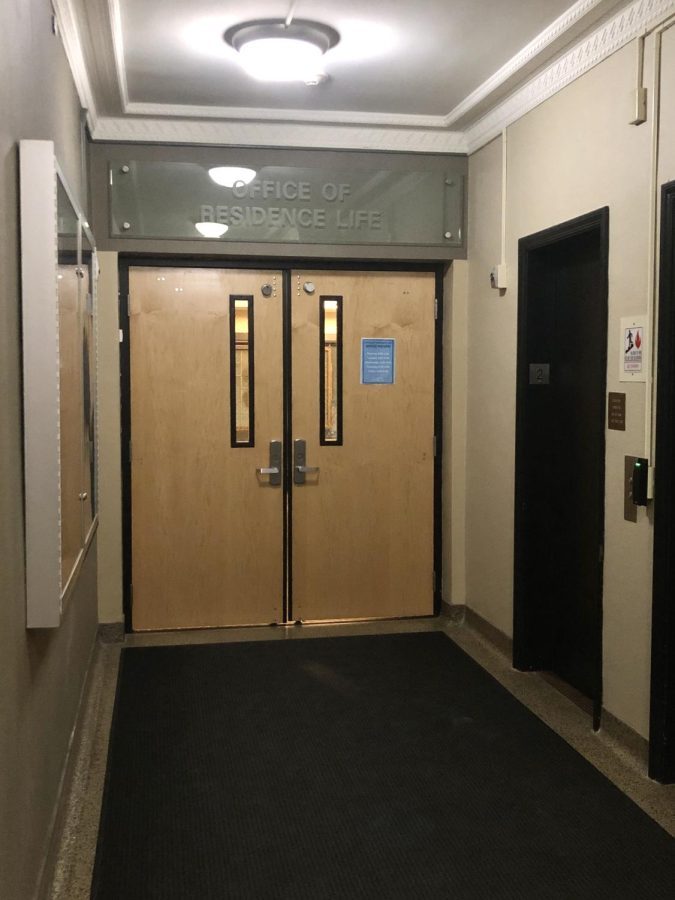The Marquette University Honors Program, which traditionally has had certain GPA and standardized test requirements and has been invitation contingent, is adhering to Marquette’s standardized test-optional policy.
The university announced June 10 that it would adopt a test-optional policy beginning with the incoming 2020 freshman class, meaning that prospective students will have the choice of whether to include test scores in their applications to the university.
An organization called FairTest, a national center for fair and open testing, has been recruiting schools to join the movement since the 2017-’18 school year. Bucknell University and Creighton University joined the movement during the 2018-’19 school year.
“Standardized test scores do not predict success,” Amelia Zurcher, the director of the Honors Program, said. “We also used to invite students to apply but that has changed. Anyone can apply now.”
Applications for the Honors Program are due Jan. 15, 2020.
Since the start of the program in 1965, Zurcher said it has aimed to go deeper than just recruiting intelligent students.
“We want Honors to be a place where you are really at home if you truly want to be curious and want to learn more,” Zurcher said. “Marquette is very college centric, so in the Honors Program, we are trying to make a place where people who have interest in different areas can be comfortable and happy in what they want to pursue.”
Kate Gustafson, a junior in the College of Arts & Sciences and Honors ambassador, further explained how the Honors Program now has a team that aims to find ways to improve the program for current and future students.
“I recently became part of the Honors action research team,” Gustafson said. “This is a small group of Honors students and professors who get together to figure out ways to make the Honors Program more equitable and more open to a larger group of people.”
So far, Gustafson and other Honors students said they are loving the idea of transitioning to being test optional.
“In terms of the Honors Program, it definitely makes it more open to people who might not have been previously invited to join because of their previous test scores,” Gustafson said.
In years past, the prerequisite of getting an invitation to apply was an ACT score of 28.
“Being test optional … will allow more people to join, and the program will not be as exclusive,” Gustafson said.
Mark Duetsch, a sophomore in the College of Engineering, said he thinks being a test-optional school will not only increase diversity in general by valuing unique backgrounds and work ethic and not just grades, but also in the Honors Program.
“The program does seem to be more Caucasian, and no one can really deny that,” Duetsch said. “I know they are working on it, and I think being a test-optional school will definitely make the program more accessible.”
There are two types of honors programs at Marquette: Core Honors and Disciplinary Honors. Students who are part of the Core Honors Program follow an Honors version of the Marquette Core Curriculum throughout their undergraduate careers.
However, for the Disciplinary Honors Program, students will do Honors work in their majors. Students can only apply for the Disciplinary Honors Program their sophomore years.
“If students want to do Honors work in their major, we have disciplinary programs for those, and we are trying to build more,” Zurcher said. “We have nursing, psychology, physics, chemistry, biology — we have a pool of Honors Programs. And you do not have to do both, you could just do one. We wanted there to be multiple points of access for students.”
With the university becoming a test-optional institution, the application process for the Core Honors Program is now more creative than what Duetsch said he remembers from his own experience.
“I remember checking a box saying that we wanted to be in it, and then if we met the requirements for our GPA and other scores, then we got an additional email saying that we can apply. So there was a GPA requirement and at least an additional essay,” Duetsch said. “I like how it is now. … It opens up more interpretation and brings more creativity to it.”
Zurcher said the goal is to make the program more inclusive.
“It used to be that you had to write an extra essay, but now you can still write an essay or you can send an object or item you would like that represents why you should be an Honors student, or you can even have an interview with a (Marquette) student,” Zurcher said. “We are trying to make it more inclusive. … We are trying to have more community engagement in our curriculum.”
The Honors Program will also be offering different research projects for different majors, Zurcher said.
Sophomore in the College of Arts & Sciences and member of the Honors Program Will Hitesman had some final advice to students who are hesitant about applying for the Honors Program in the future.
“The Honors college is not solely for the ‘gifted,'” Hitesman said. “In life, there will always be people that will be better than you at something, so you shouldn’t be afraid to ask for help. There will be people that you’re going to see that are struggling a bit, so you (should) be open to helping them.”
Correction: A previous version of this story stated that the deadline for applications to the Honors Program is Sept. 15. In fact, the deadline is Jan. 15, 2020. The date Sept. 15 is when students admitted to Marquette are able to apply to the Honors Program. The Wire regrets this error.




